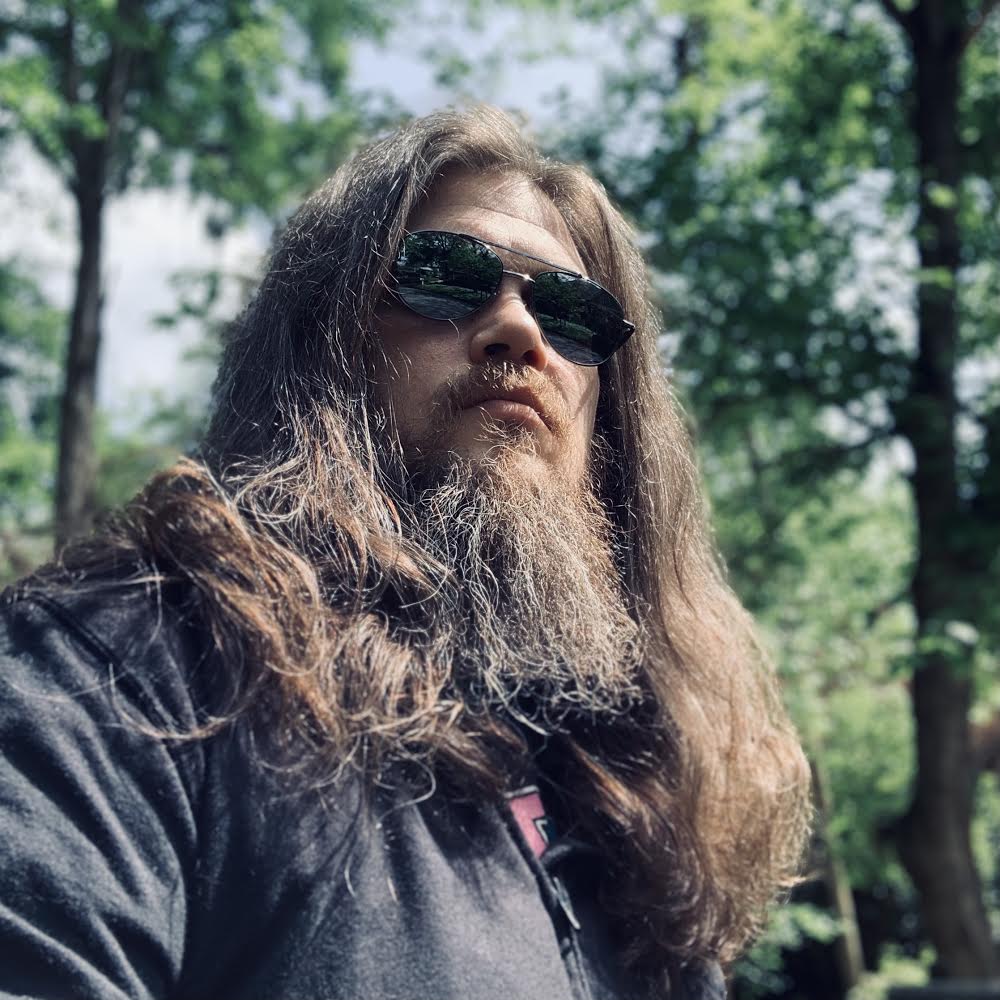What is the Marvel Comics event House of M?
Here's everything you need to know about House of M - and how it may relate to WandaVision
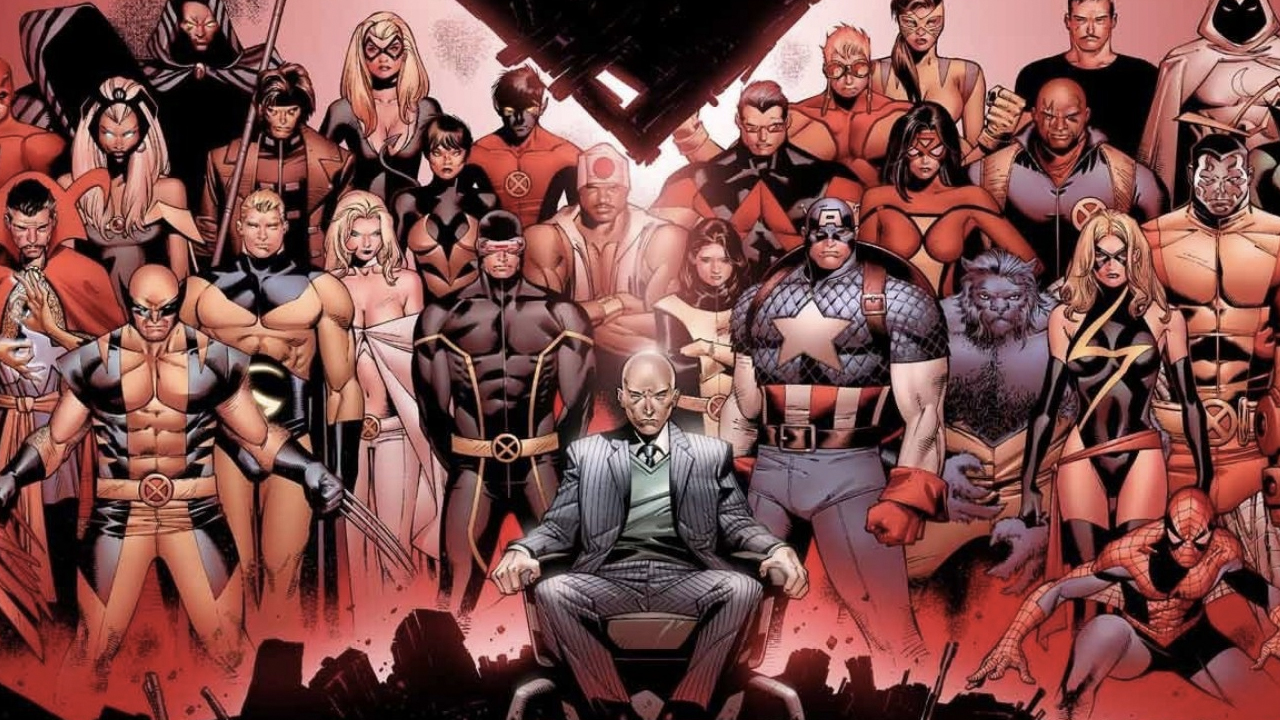
A new trailer for the Disney Plus original series WandaVision may have just dropped an obscure hint at the beginnings of mutants in the Marvel Cinematic Universe – and as some have long theorized, their introduction may lie in the burgeoning MCU multiverse - with some strong evidence from the comic book source material to back up that theory.
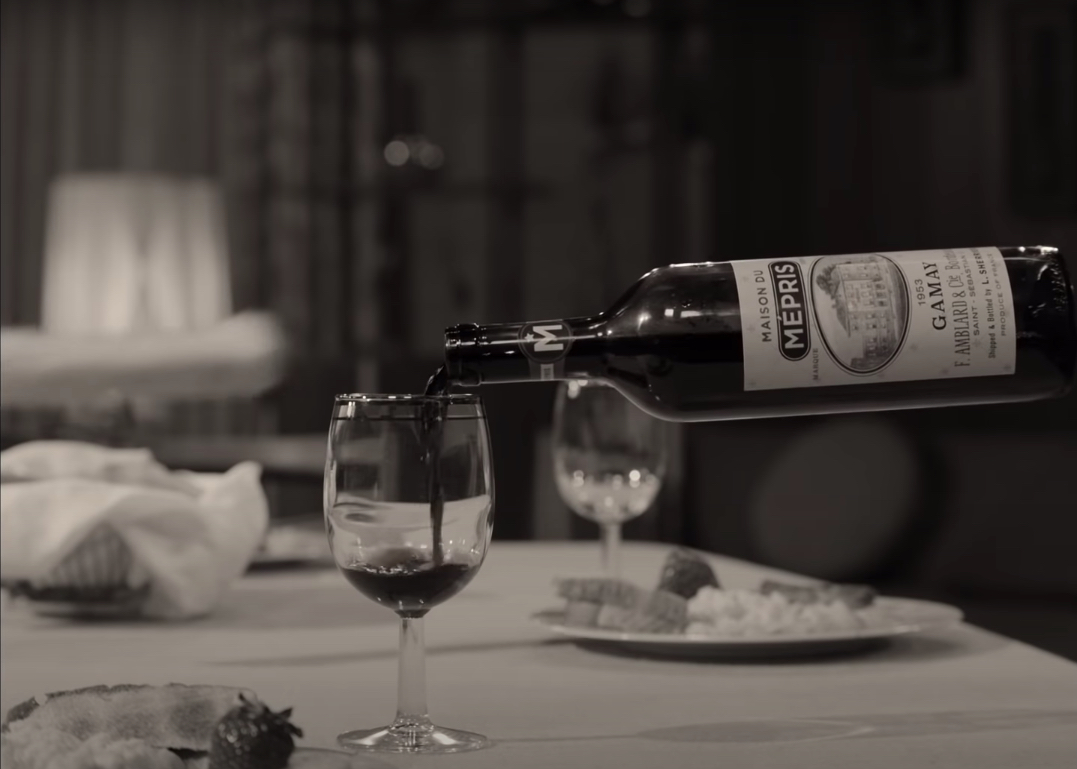
Spotted in a couple of black and white frames of the trailer, Vision holds a wine bottle marked with the French name "Maison du Mépris," which roughly translates to "House of Contempt" - or, in a partial translation, House of M, the name of a landmark Marvel Comics event in which Wanda Maximoff/the Scarlet Witch was a central character.
As for why 'Contempt,' it may be a reference to a less-than-blissful married life with Vision, masked by a sitcom setting - or a reference to Wanda's time as a villain in the aforementioned House of M.
You read that right.
While this somewhat obscure Easter egg may simply be a nod at the Scarlet Witch's comic book history, the apparent reality-warping nature of WandaVision's story as shown in the trailer could mark the story it references, House of M, in which mutants rule over humans in an alternate world, as a potential in-road to bring mutantkind into the MCU.
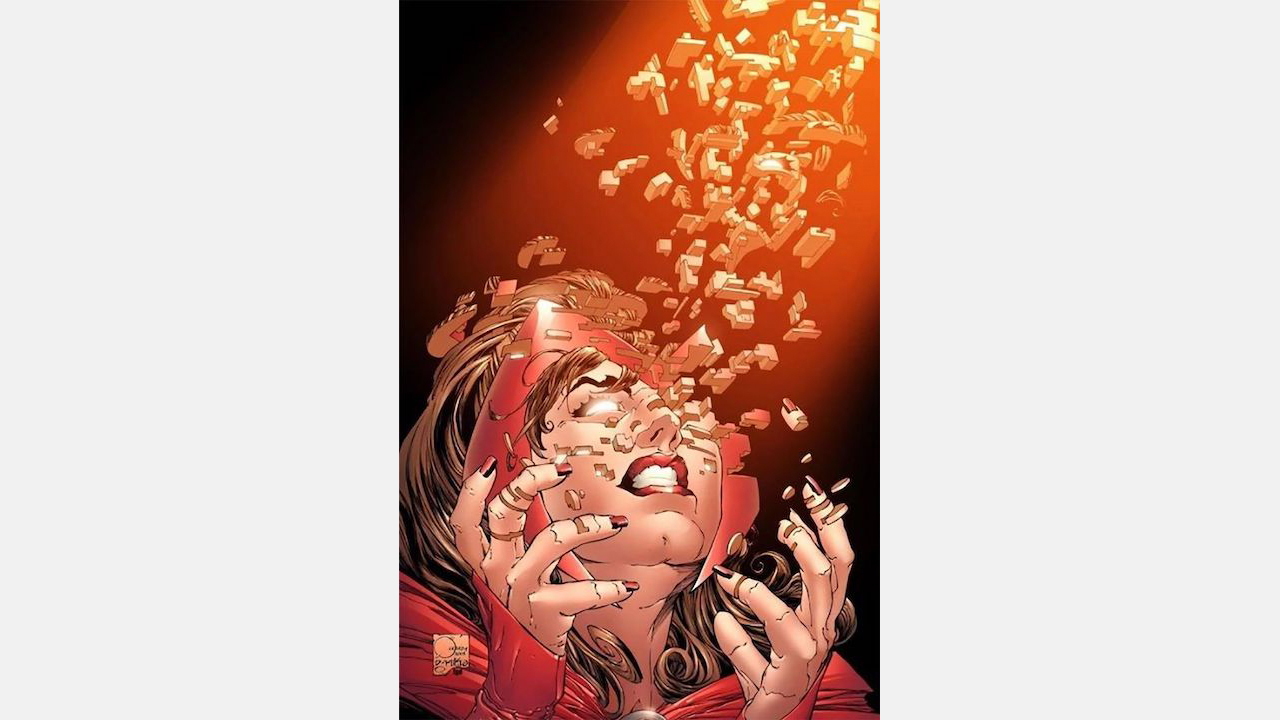
Mutants have been a part of Marvel Comics lore since 1963, when Stan Lee and Jack Kirby introduced the X-Men - a team who have gone on to become some of the publisher's most enduring characters. In fact, Scarlet Witch was one of the earliest mutants created, debuting as a villain alongside Magneto in X-Men #4.
Considered by some in the Marvel Universe to be the next evolution of humankind, mutants (also known as 'homo superior') are born with a so-called X-gene that gives each mutant their own unique superpower.
Comic deals, prizes and latest news
Get the best comic news, insights, opinions, analysis and more!
Mutants are born with these abilities – though most don't manifest their powers, which can be anything from telekinesis to weather control, to full-on reality manipulation, until their teens. Because of these powers, mutants have historically been hunted and feared by baseline humans, nearly to extinction.
But it was one of their own that almost destroyed mutantkind – Wanda Maximoff, the Scarlet Witch - who once weaved a reality-warping spell so dire that nearly all mutants were lost as a result.
How did this come to pass, and why? And how do these questions relate to the just-released WandaVision trailer, and what that show could mean for mutants in the MCU? These are mysteries Newsarama will solve right now, as we unpack the multiversal mutant madness that is House of M – a 2005 crossover event that gave mutants their own kingdom long before Krakoa (their current living mutant island sovereign nation), and almost drove them to extinction as a result.
What is House of M?
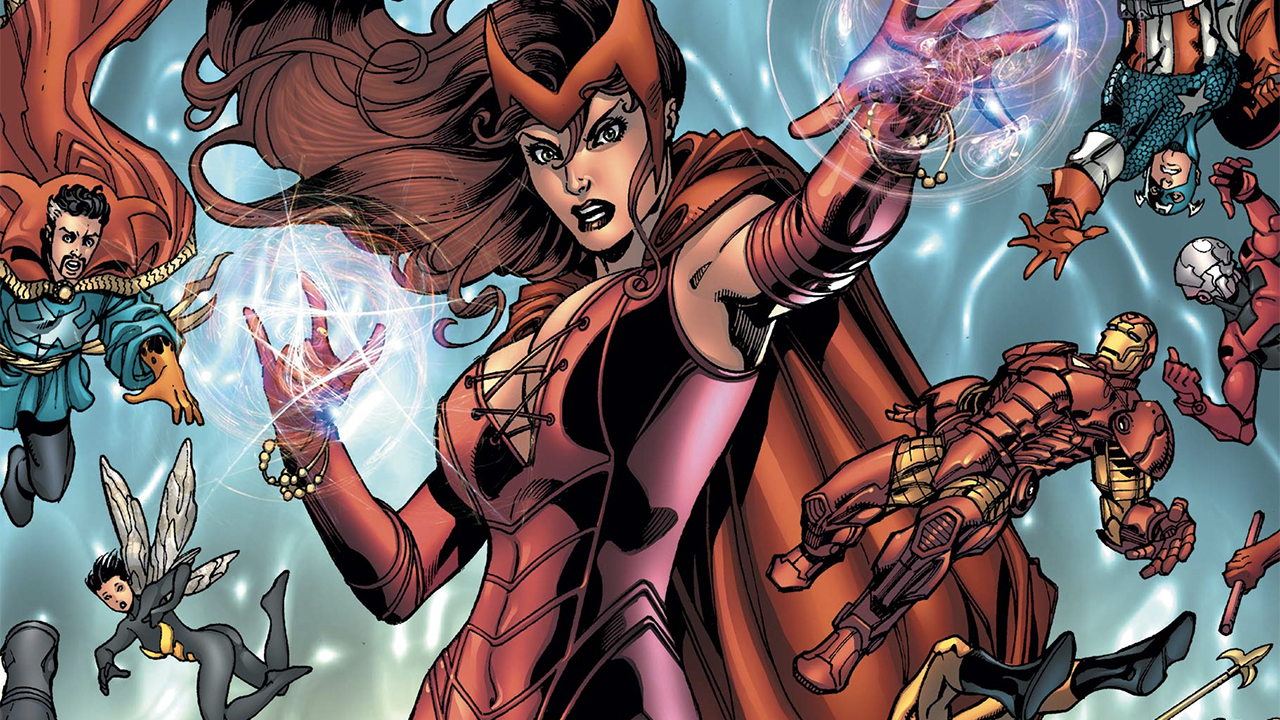
To explain House of M, you have to start at the events that led to it – starting with the destruction of the Avengers.
In 2004, Marvel Comics was looking to revitalize its Avengers franchise, which was flagging after a few years topping the charts thanks to still classic stories from creators such as Kurt Busiek, George Perez, Geoff Johns, Olivier Coipel, and many others. To do so, they tapped then up-and-coming writer Brian Michael Bendis, who was a few years into a high-profile relaunch of the entire Spider-Man mythos in the alt-universe Ultimate Spider-Man at the time.
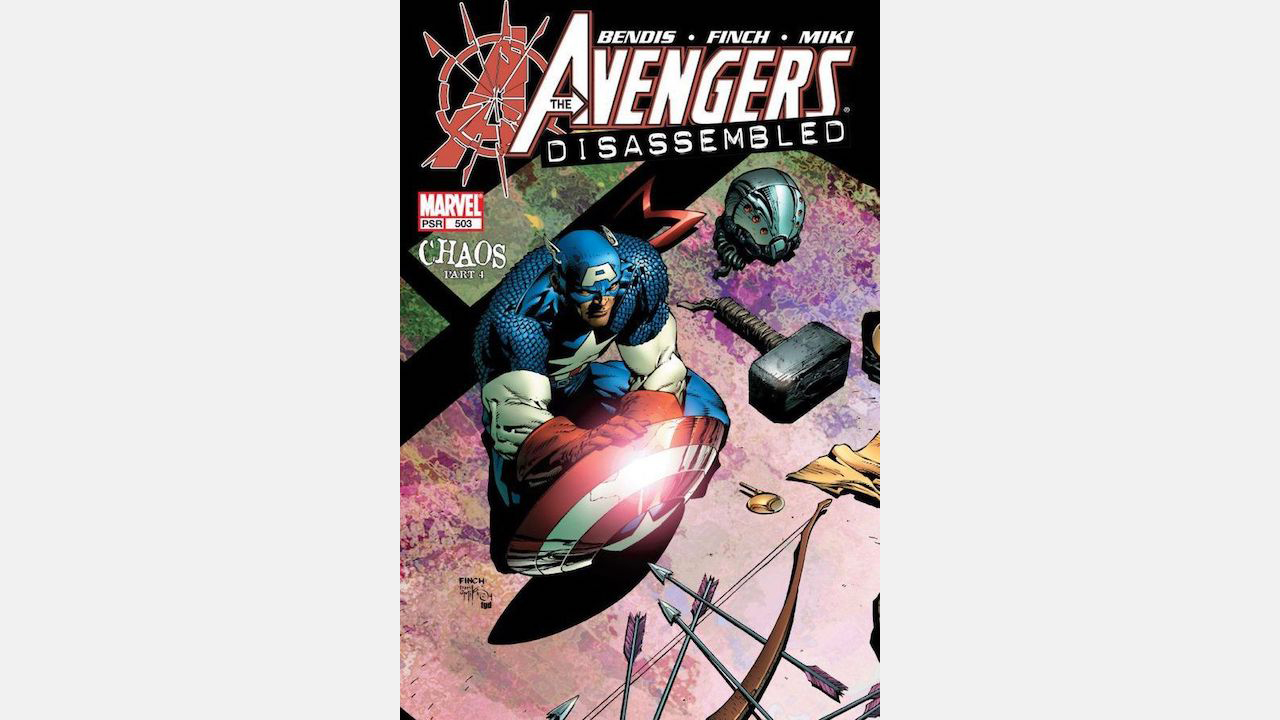
Bendis took over with Avengers #500 (one of the first examples of Marvel Comics reverting a then-renumbered title to a legacy issue number, a practice still in place today), crafting the three-part 'Avengers: Disassembled,' in which a number of escalating crises from Tony Stark getting drunk at an important government event to an apparent Kree invasion all arise at once – resulting in the deaths of the Avengers Scott Lang/Ant-Man, Hawkeye, and the Vision (and, in a parallel side story, the death of Thor), and the dissolution of the Avengers as a whole.
But the truth of the crises was much more sinister – they were all manifestations of the reality-warping powers of the Scarlet Witch, who had turned on her Avengers teammates as a result of a psychological break following years of trauma including the death of her children (a much more complex story than it sounds), the destruction of their father the Vision, and the end of his relationship with Wanda after being rebuilt – and a healthy push of dark manipulation by Doctor Doom, from behind the scenes.
When the dust clears, Wanda is in bad shape in the hands of Magneto (then believed to be her father, in comic books – it's still not exactly clear what the deal is), with Professor X of the X-Men attempting to use his psychic powers to help her deal with her trauma.
It all backfires, however, when the Avengers and X-Men begin debating on whether they should kill Wanda, in fear of her powers going haywire and killing more people. But her brother, Pietro Maximoff/Quicksilver, relays news of the plan to Magneto, who secrets his daughter away, where she casts a spell that rewrites all of reality, creating a new world ruled by mutants with Magneto and his dynasty at the top – the titular House of M.
What happened in House of M?
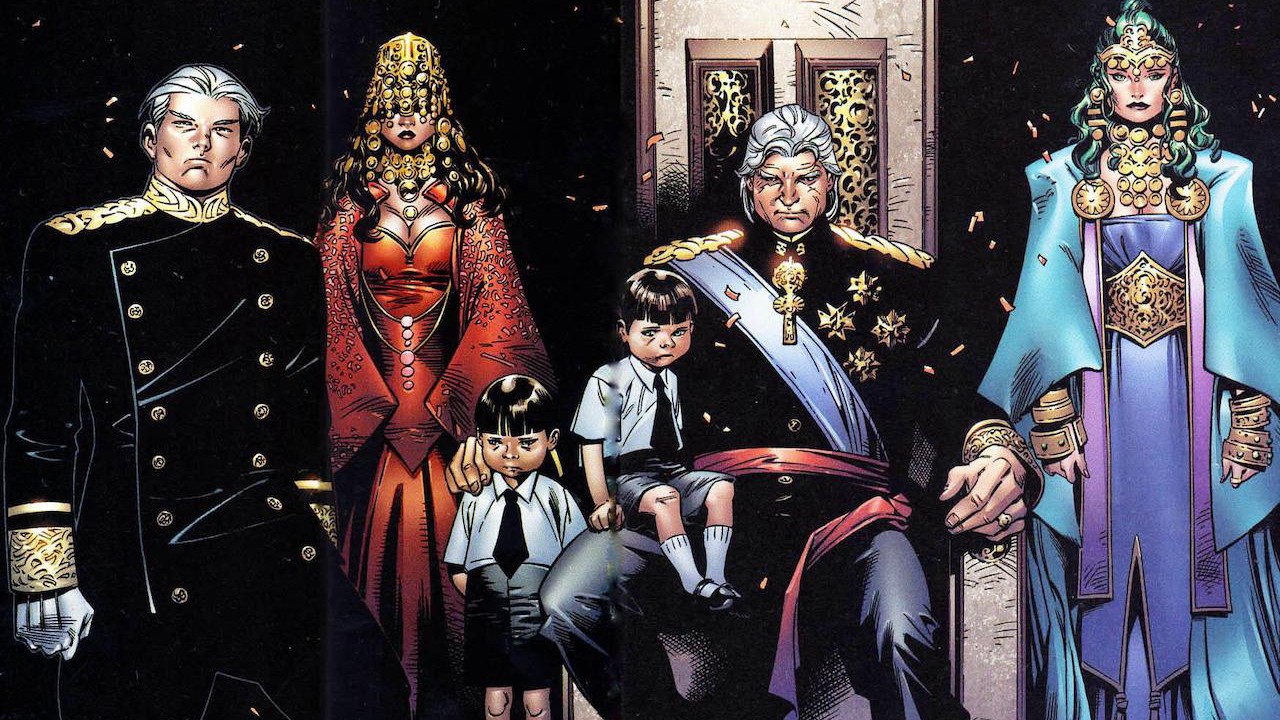
House of M was an eight-part limited series that also included a number of requisite tie-ins and spin-off series set in its unique world, where Magneto has fulfilled his ambitions of a society led by mutants, and humans are relegated to second-class citizens.
In the House of M reality, Magneto's eponymous 'house' includes Pietro, Wanda, Wanda's sons William and Thomas, and Magneto's other daughter Lorna Dane/Polaris. A few humans, known as 'sapiens,' have a special status in society, including America's greatest non-mutant hero Carol Danvers/Captain Marvel (in her first outing using that moniker – which later inspired her to take it on in the core Marvel reality), and Spider-Man, who is a heroic celebrity believed to be a mutant (though as in the core Marvel Universe, he's Peter Parker, who got his powers from a radioactive spider-bite).
A host of other Marvel heroes appear in altered roles, including an aging Steve Rogers, a non-magical Doctor Strange, and most importantly Wolverine – who actually appears as his core reality self with his powers, personality, and memories intact.
After failing to convince the X-Men that they're trapped in an alt-reality – something they've experienced all too frequently – he turns to Luke Cage, Hawkeye (who is back to life in the House of M reality), and the human resistance, who wish to overthrow mutant rulership. Wolverine awakens them to the truth of their warped reality, and the group finally manages to convince some of the X-Men to join them – though not without plenty of cuts and bruises along the way.
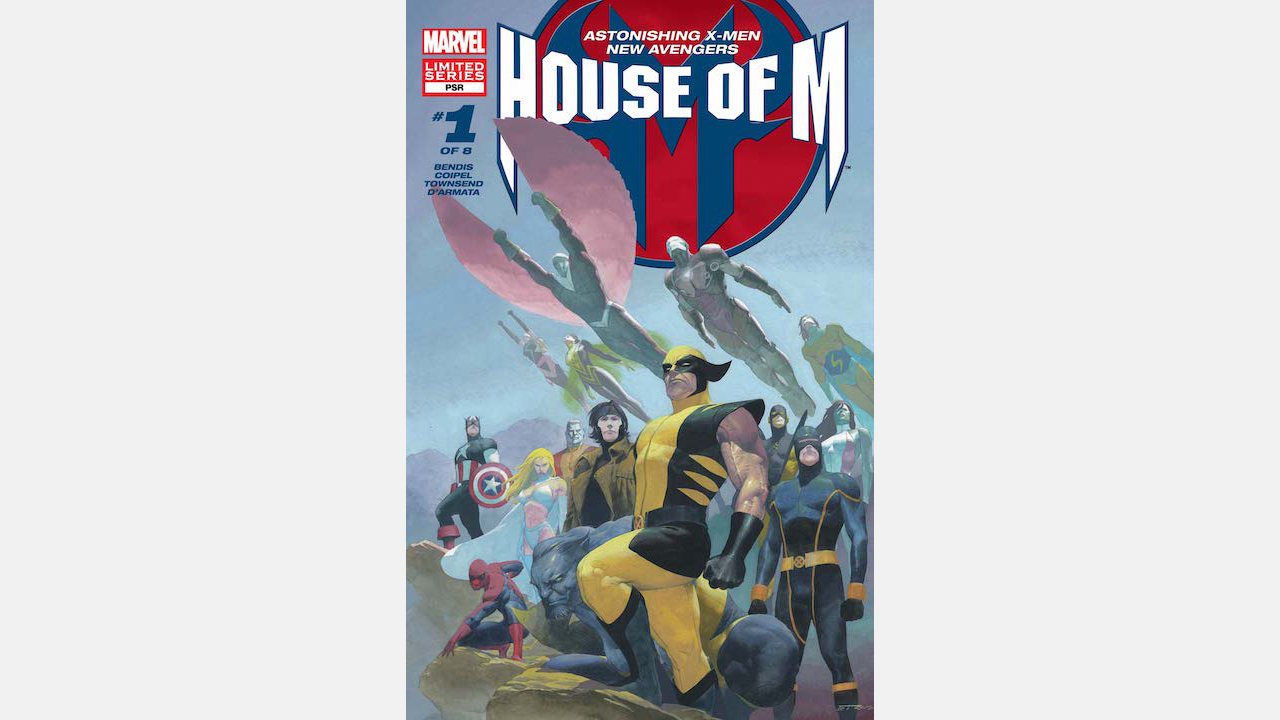
In a final confrontation with Magneto, it's revealed that he manipulated Scarlet Witch into casting a reality-altering spell that granted people their greatest wish – Magneto was given rulership of humans, Wanda got her sons back, Quicksilver got a family, Spider-Man and Captain Marvel became celebrated heroes, and so on – resulting in the House of M reality.
As Magneto is defeated, Scarlet Witch lashes out again, raging against both the manipulation by her father and by the marginalized status mutants experience in the real world. Deciding to end the whole thing once-and-for-all, Wanda casts one final spell – her most dire and destructive yet.
"No more mutants."
With that one phrase, Wanda Maximoff returned the Marvel Universe to normal – and simultaneously took away the mutant powers from all but 198 mutants, killing many as a result and depowering thousands, if not millions of mutants, including many well-known X-Men and villains.
How does House of M fit into the Marvel Universe?
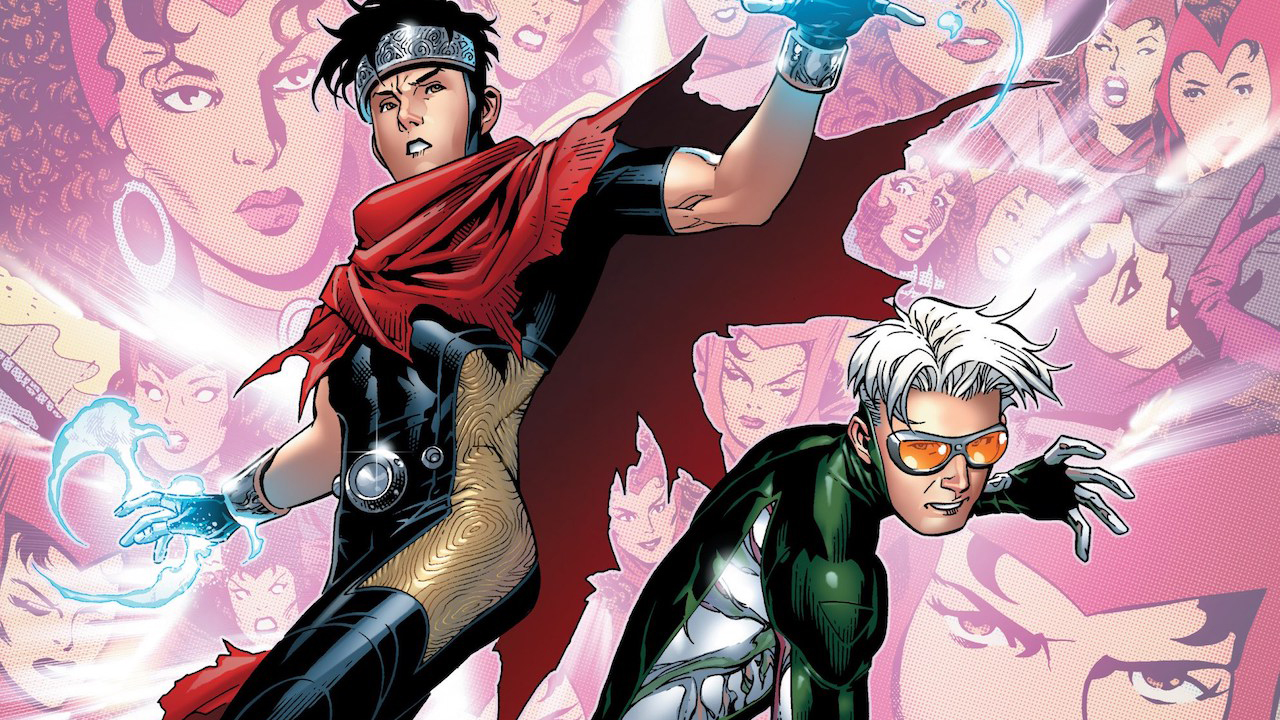
This event, called 'M-Day,' has colored X-Men stories for years since, with the direct ramifications still playing out in the 'Dawn of X' era, where mutants can be resurrected and their powers restored by powerful rituals and science.
M-Day marked a period of increasingly dire circumstances for mutantkind, with their numbers dwindling and conflicts with the Avengers and other heroes also leading to an eventual split in their ranks and further deaths at the hands of a disease caused by the Inhuman Terrigen Mists.
Though most of that has been resolved with 'Dawn of X,' the ramifications of House of M and M-Day have reverberated throughout the Marvel Universe.
As the story kicked off with the deaths of Hawkeye, Vision, Ant-Man, and Thor, and the villainous turn of Scarlet Witch, the Avengers lost a solid chunk of their core roster for years, resulting in the elevation of characters such as Wolverine and Spider-Man to Avengers-status and shaking up the definition of 'Earth's Mightiest Heroes' for decades – resulting in a wave of newfound popularity among comic book fans that some might say directly led to the viability of the Avengers as a film franchise.
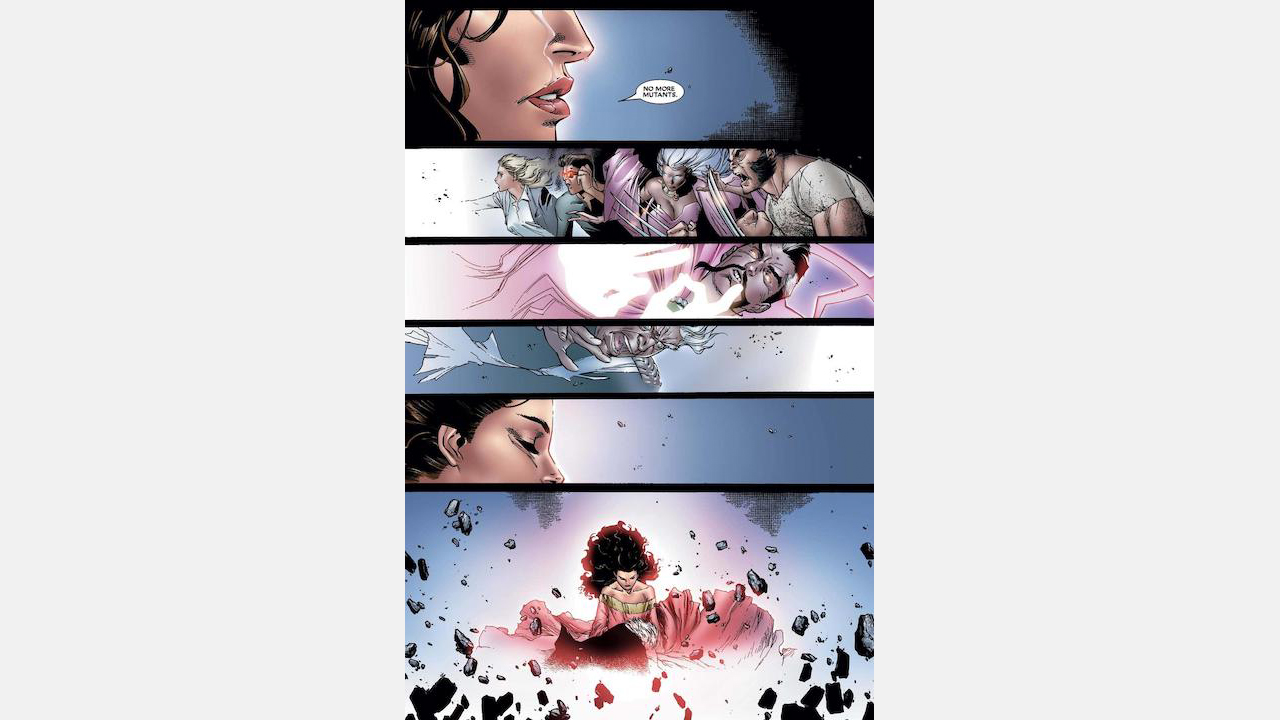
Those heroes have since gotten better – but House of M also kicked off a web of interconnected event stories in which the heroes of the Marvel Universe were sent to ground as villains, divided, destroyed, and invaded.
As a result of House of M, the Skrulls, who long sought to conquer Earth, saw an opening with the reduction in the number of mutants to strike, launching an insidious infiltration campaign to replace some of Earth's heroes including the Avengers, X-Men, and more, and take over the world. That story, Secret Invasion, led Spider-Man's one-time arch-enemy Norman Osborn (a.k.a. the Green Goblin) to become the leader of a new world security force titled HAMMER which replaced SHIELD after defeating the leader of the Skrulls.
That led Osborn to turn the Avengers and other heroes into criminals while forming his own Avengers, composed of some of the team's arch-enemies taking on the mantles of their heroic counterparts, such as Bullseye as Hawkeye – culminating in the death of Loki and the destruction of Asgard, along with Osborn's defeat.
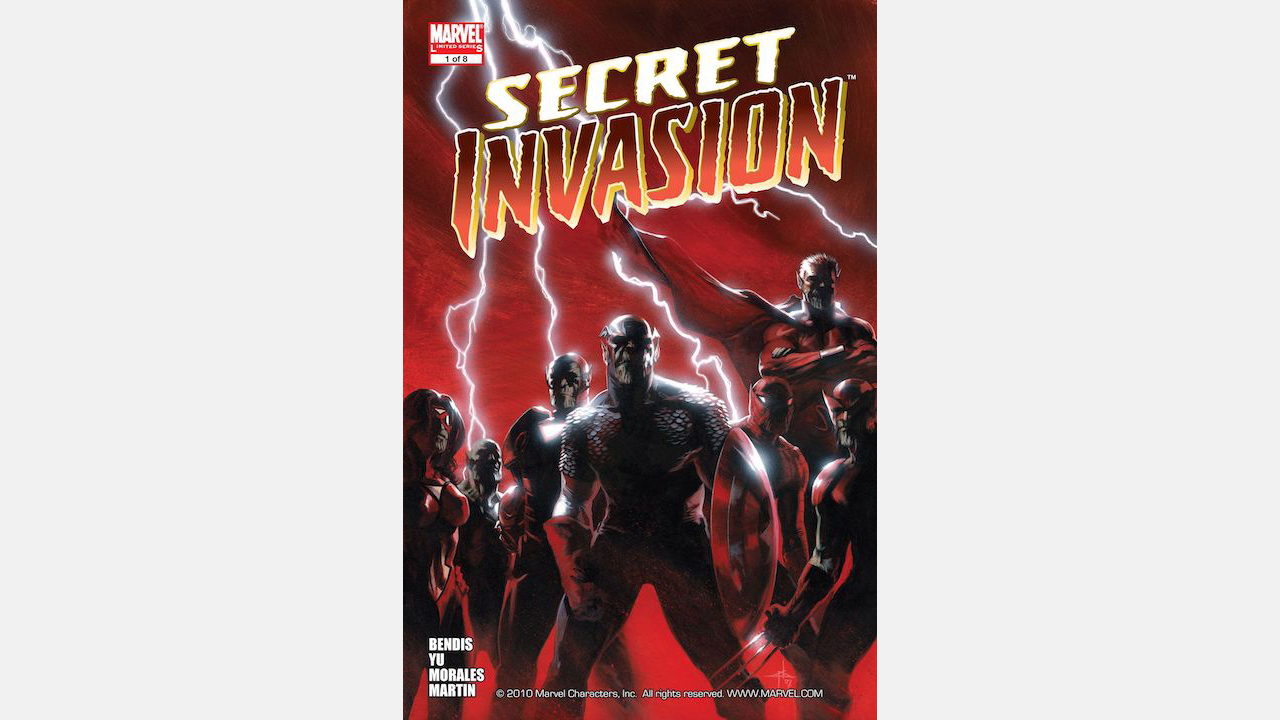
Upon his return from death, Hawkeye took on the identity of Ronin – something fans saw play out slightly differently in Avengers: Endgame. And as a result of her time as a great hero in the House of M universe, Carol Danvers found the confidence to take her place as Captain Marvel after decades as Ms. Marvel and become one of the Marvel Universe's greatest heroes – leading straight to her own inclusion in the MCU.
Wanda's children, William and Thomas, once thought to have been simple magical constructs of her imagination – were revealed to have been reborn as two mutant children, Billy Kaplan/Wiccan and Tommy Shepherd/Speed of the Young Avengers. Billy Kaplan is, of course, now the consort of Teddy Altman/Hulkling/Emperor Dorrek VIII of the Kree/Skrull empire – all of which was at the center of this summer's Empyre comic book event. And of course, the Skrulls have played a key role in the MCU since their debut in Captain Marvel, including impersonating Nick Fury while he works on some kind of apparent space station.
Incidentally, those twins are seen as infants in the trailer (seen below) - remember, it's their supposed 'deaths' that set off the entire chain of events leading to House of M.
The ramifications only go on from there, as House of M marked the start of an entire epoch in the Marvel Universe.
How could House of M effect the MCU?
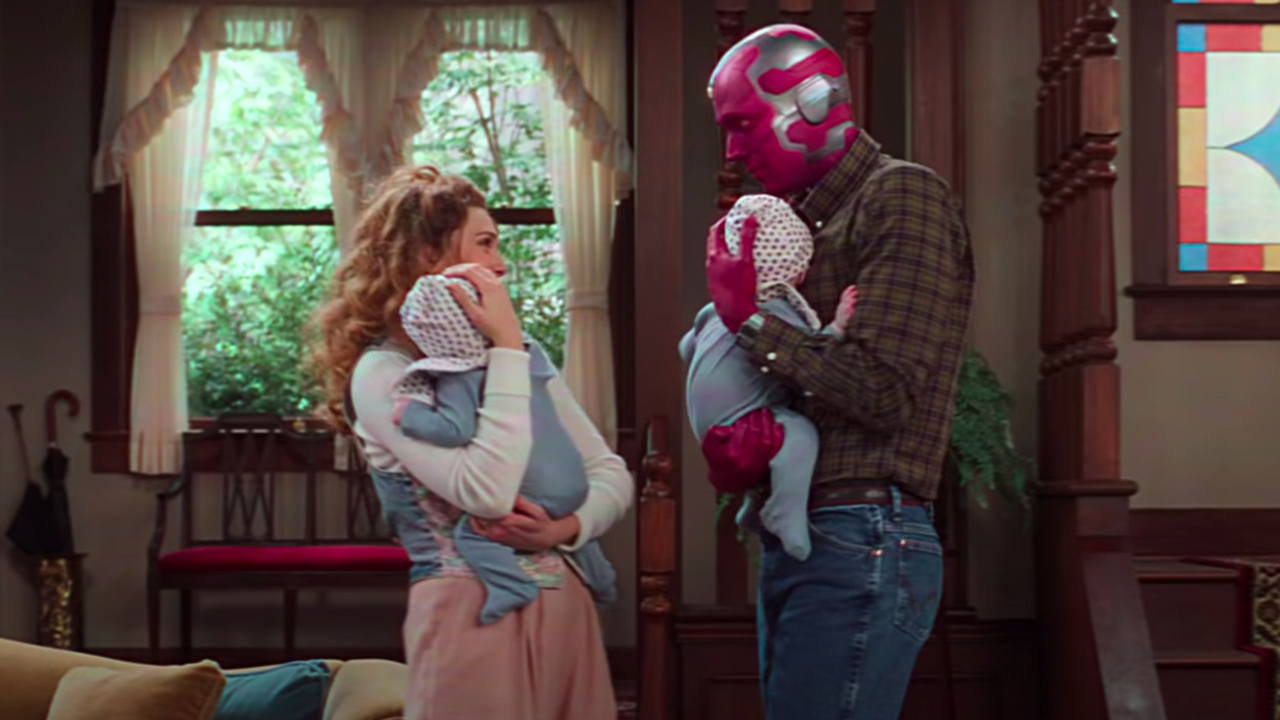
There are some clear potential answers to how incorporating aspects of House of M could play out in the MCU.
The implication of WandaVision's story from the brief trailer is that there is a reality-warping component to the show – something that would explain the rapidly changing setting, the presence of Kat Denning's Darcy, and potentially even the House of M Easter egg.
And that would dovetail nicely with the upcoming Doctor Strange in the Multiverse of Madness, a film Marvel Studios President and Chief Creative Officer Kevin Feige said would pick up threads from both WandaVision and its fellow Disney Plus show Loki – and in which Wanda herself will even appear as a supporting character.
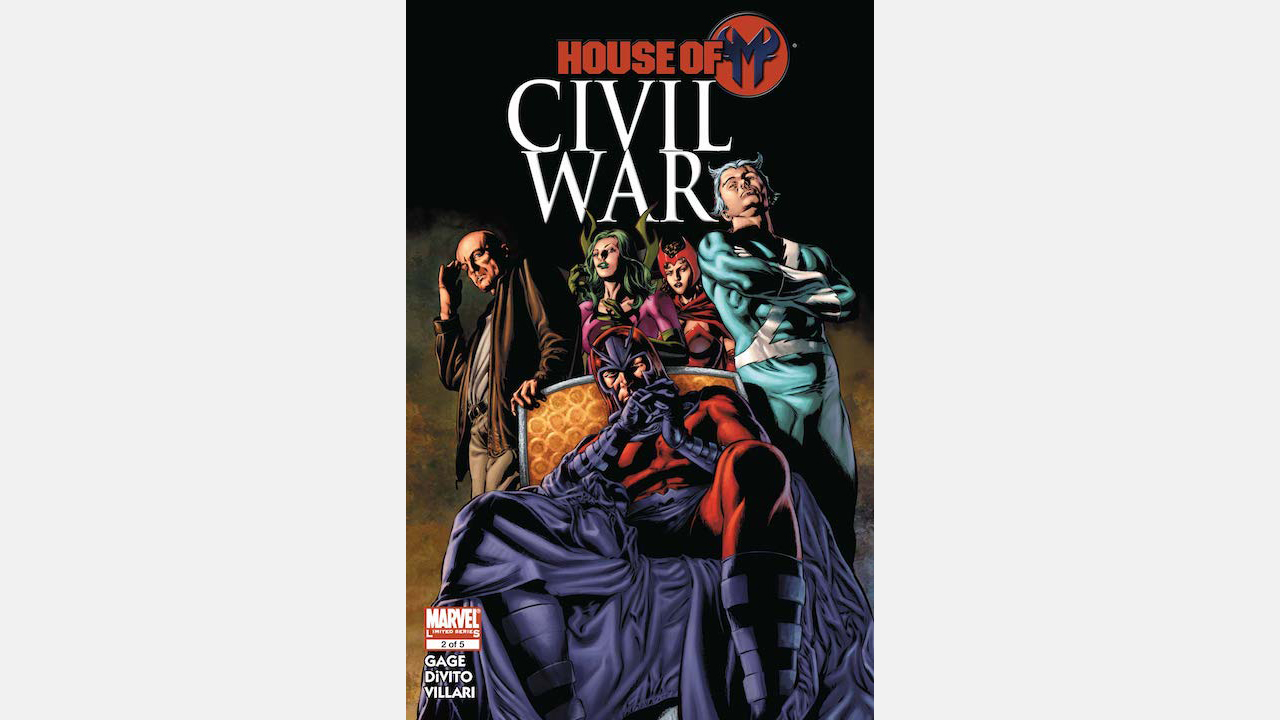
Given all of that, there's a great chance that Wanda's powers will evolve to full-on manipulation of reality, and that her comic book origin as a mutant - something not shared by her MCU counterpart who gets her powers from an Infinity Stone – could come into play in the MCU another way over the course of WandaVision.
For example, that whole, 'Magneto is Wanda's father' thing - could it be in the slightest realm of possibility that Magneto's history from the previous Fox movie franchise, where Pietro Maximoff/Quicksilver was his mutant son, who himself had a sister, could be sort of written into MCU Wanda and Pietro's history?
Could that lead to bringing in other aspects of that franchise - even to reboot them entirely?
Comic book precedent says that Wanda's reality-altering powers could include everything from empowering or depowering mutants, changing and creating alternate realities, and even bringing people back to life – or killing them.
Or perhaps sending them to a different universe altogether – something Spider-Man may need help with to make it over to Sony's Marvel Universe down the road (remember, as of the end of Far From Home, his secret identity has been exposed and he's been accused of murder).
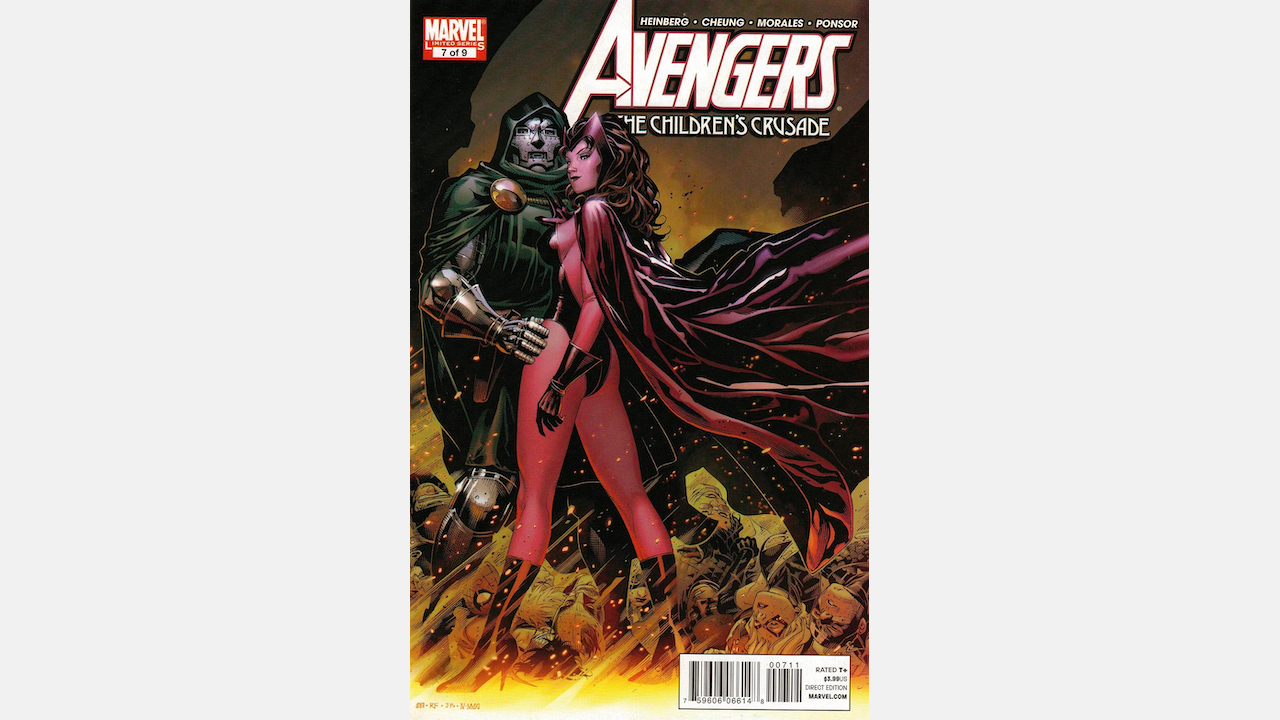
And then there's the component we haven't addressed – Wanda's relationship to the Fantastic Four's greatest enemy Doctor Doom, and his role in House of M.
Though Doom himself didn't appear in any of those stories, years later, the story Avengers: The Children's Crusade retconned the story of 'Avengers: Disassembled' and House of M to show Doctor Doom using his own magical prowess to manipulate Wanda's psyche behind the scenes, leading to all the death and carnage.
Given Kang the Conqueror, a character with a potential blood relation to Reed Richards of the Fantastic Four and to Doom himself, is about to hit the screen in Ant-Man 3 with Jonathan Majors reportedly taking the role, could Doctor Doom play a role in WandaVision somehow as well?
The potential seeds of WandaVision throughout the MCU are vast – that seems to be the case when reality itself is subject to change. And even narrowing down the potential consequences to the simple basis of Scarlet Witch's comic book story hints at potentially massive ramifications down the line.
House of M only scratches the surface of mutant history. Check out the greatest X-Men stories of all time.
I've been Newsarama's resident Marvel Comics expert and general comic book historian since 2011. I've also been the on-site reporter at most major comic conventions such as Comic-Con International: San Diego, New York Comic Con, and C2E2. Outside of comic journalism, I am the artist of many weird pictures, and the guitarist of many heavy riffs. (They/Them)
